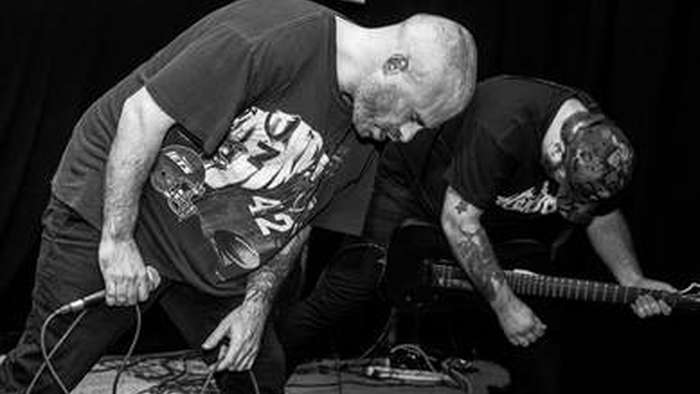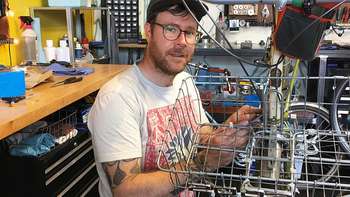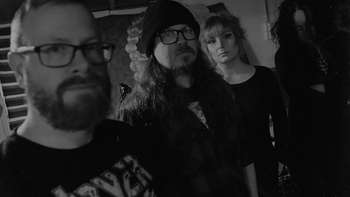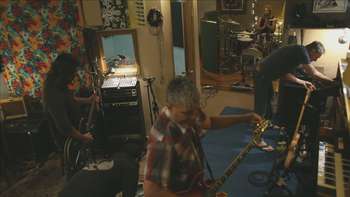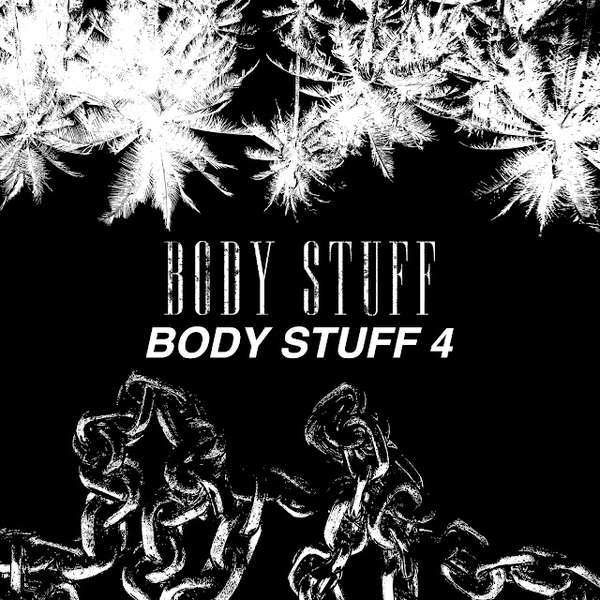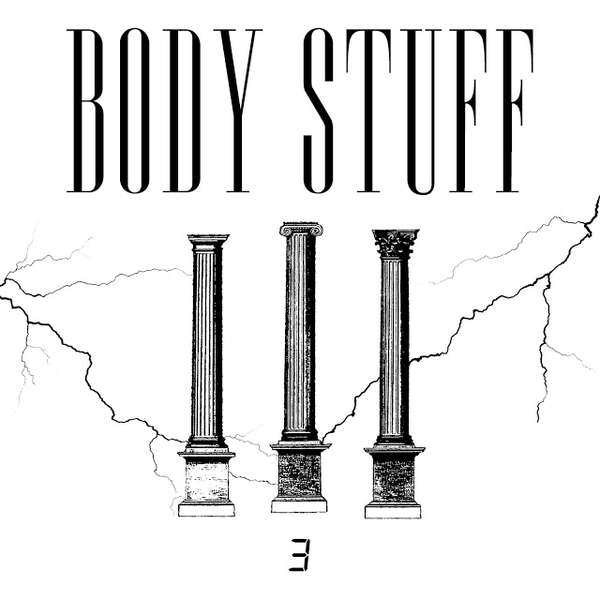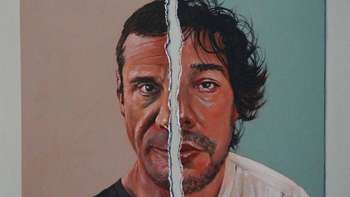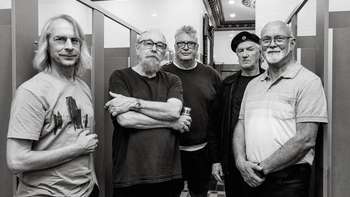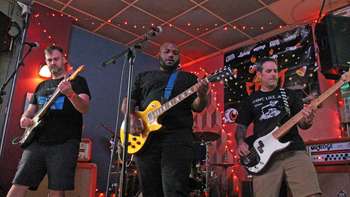There are a lot of misconceptions about the life of a musician. The old rock star image of bright lights, fast living and traveling with an entourage is almost patently false. Most musicians have day jobs –- and not just to pay the bills. Jobs provide new challenges, personal fulfillment and, yes, some rent or gas money. And usually when somebody is writing a new record or scheduling a tour, they have to balance that with their job.
How an artist spends their time by day will influence the creative process at night. In Don’t Quit Your Day Job, Scene Point Blank looks at how musicians split their time, and how their careers influence their music –- or, alternately –- how their music provides escape.
Today we caught up with Curran Reynolds for a look inside the industry. You may know his work with Body Stuff, but at SPB we also know his PR work with The Chain.
Scene Point Blank: You've played in various bands, worked as a freelance writer, and you're currently doing public relations as a co-founder of The Chain. Can you summarize what you personally do with The Chain and how things came to be?
Curran Reynolds: I founded The Chain in 2016 with Justin Pearson and Brandon Gallagher. I'd been a fan of JP's band The Locust for a long time and we finally met and became friendly in 2010 when his new band Retox toured the UK with Today Is The Day, the band I was playing drums in at the time. A few years later, Noah Rubin at Mass Appeal asked me to write some features for the magazine and I came up with the idea to write about JP and the 20th anniversary of his label, Three One G. Pretty soon after that, I did some PR work for Three One G and from there it naturally progressed to where we had a conversation, like "Hey, what if we team up and start something new together?"
I met Brandon in 2012. I was booking a weekly party called Precious Metal in the basement of Lit, a legendary bar here in NYC. I'd been doing it every week for almost 7 years and I made the decision to bring it to an end. Fred Pessaro suggested I put this band Old Wounds on one of the final shows and Brandon was the drummer in that band. I could see right off the bat that Brandon was a really driven person, handling all the business for his band and also doing graphic design. I became Old Wounds' publicist shortly after that and got to know Brandon well over the next few years. Similar to the JP thing, the idea of teaming up with Brandon in a new way started to crystallize in my mind and I reached out to him and proposed it. That was the origin of The Chain. I'd been freelance, on my own, for at least 10 years at that point and I felt like, if I'm going to move my business forward into a new chapter JP and Brandon are the people I want to do it with.
With The Chain, we do PR. Essentially, we represent bands we like and help them get press. Day to day, I am directly handling PR campaigns for my clients, as well as working with JP and Brandon on big-picture stuff regarding The Chain's brand and moving the company in new directions.
Scene Point Blank: What's your official job title?
Curran Reynolds: I am the co-founder of The Chain.
Scene Point Blank: What is your education? What brought you to this specific job?
Curran Reynolds: Music rocked me at a very young age. Certain classical music that my dad would play, for example: Tchaikovsky's 1812 Overture, etc. Michael Jackson's Thriller was probably the first pop music I obsessed over, thanks to my friend Paul who gave me that record. On the playground, kids started breakdancing to The Fat Boys and Run-DMC and I got attuned to those sounds. I got extremely psyched on the simple beats and synth hooks of songs like "Axel F" and "Rock Me Amadeus." I have a cousin, Alisha, who got some fame as a freestyle singer in NYC around that time too. "All Night Passion" was her big song.
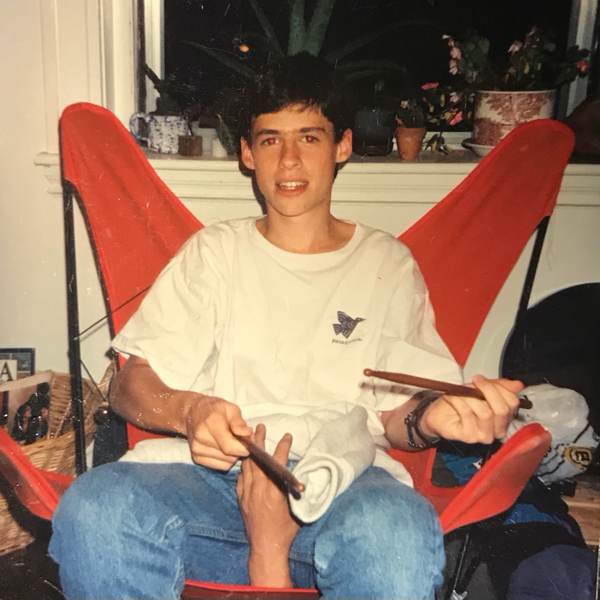
At play, 1991
I spent fifth grade with my dad in Kansas and all the kids out there were into heavy metal, so by the end of that school year I'd embraced bands like Bon Jovi, Europe, and Motley Crue. Returning to live with my mom in Maine in the summer of 1987, she took my sister and me to our first rock concert: Tina Turner. She could see I was really getting into music and she bought me a subscription to Rolling Stone. That magazine was my bible for the next few years. Age 10 and 11, I was listening obsessively to bands like Pink Floyd, The Who, U2, and R.E.M., followed by Metallica, Jane's Addiction, Pixies, Sonic Youth, and so forth. I started playing drums at age 10 too and played in bands nonstop from then on.
At 17, I left home in Maine to attend Sarah Lawrence College, a school about 10 miles north of NYC. I got an internship at Matador Records in my junior year at college. That was my first job in the music industry. They put me in the PR department and I barely understood what that meant at the time. I just wanted to be around music.
That summer, I lived in the East Village with my sister and, to pay my $500 rent, I got jobs handing out flyers for nightclubs and venues around town. One of those venues was SOB's, where artists like Tito Puente, Celia Cruz, Gregory Isaacs, and Yellowman were regularly playing. I hit it off with the publicist there and we kept in touch. It turned out that she was planning to leave her job the same week I was graduating college. So, pretty miraculously, I was handed the job as publicist at SOB's and I started work the Monday after graduation. My next big break came the following year when I was hired by Al Dawson to be the publicist at Earache Records' US office. That was a dream come true. I was deep into metal at that time and it was a thrill to be suddenly behind the scenes with bands like Morbid Angel and Decapitated. I stayed at Earache for the next five years and learned a lot. After five years I was ready to do things on my own terms, so I went freelance and never looked back.
Scene Point Blank: How does your background as music journalist influence your approach to PR?
Curran Reynolds: As a publicist I write almost every day, but in addition to that I've also done some journalism over the years. It's fun stepping over to that side once in a while. One of my favorite writing gigs was writing record reviews for Vice back in 2002, when Jesse Pearson was the editor. He let me review any album I wanted, so I just picked my favorite albums of the day and gave them all 10/10 ratings. Instead of standard reviews I wrote little poems. Some of the bands I reviewed that way for Vice were Khanate, Lansing-Dreiden and Song of Zarathustra. Another cool opportunity came in 2006 when my friend Alanna Gabin was helping the one and only Mark Gonzalez edit an issue of The Journal and they invited me to contribute something. I polished up a tour diary I had written the previous year, from my band Wetnurse's first big US tour, and they published a big chunk of it along with photos I had taken on the road. Another good one came in 2014 when my friend Polly Watson hired me to interview Lil Debbie for High Times. And then there were the Mass Appeal features I mentioned: there was the piece about JP and his label, Three One G, followed by interviews I did with Jessica Pimentel and Nikki Sneakers.
Scene Point Blank: How about your background as a musician (influencing PR work)?
Curran Reynolds: This is big, yeah. I believe I relate to the bands I am representing because I know from my own experience what it's like to write music, record music, perform live, book shows, book tours, travel the world, design album covers, design merch, etc. I know every aspect of it, so I am very much on the side of the bands and I enjoy taking the ride with them and helping them achieve what they want.
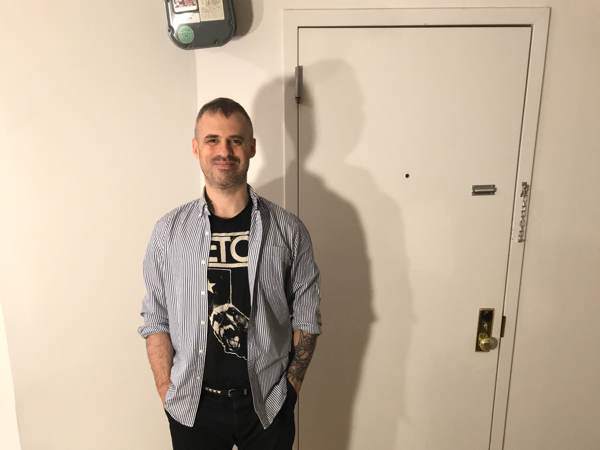
At work, 2021
Scene Point Blank: What got you interested in promotion?
Curran Reynolds: I entered the music industry as a lover of music, not a lover of promotion. But yeah, as it turns out, it can be fun and fulfilling to help spread the word about things I like.
Scene Point Blank: You also release music as part of Body Stuff. How do you balance the two worlds of PR and performance?
Curran Reynolds: PR is the day job that pays the bills. Body Stuff is the art. Each brings out a different part of me. I approach the day job as a professional. It is selfless work. It's all about helping other people. Body Stuff, on the other hand, is a self-centered pursuit. But having said that, I hope Body Stuff will help people in its own way too.
Scene Point Blank: Has working PR had a direct impact on your art or creative process?
Curran Reynolds: Through 20 years of working in the music industry, I've gotten to know a lot of people and learn how things work. But in terms of the art itself, it's a thing of its own, with roots going back to my childhood, way before I knew what PR was. I like to think I shut off the business mind when making art and operate from a naive place of pure fire.
Scene Point Blank: What are some of the unique challenges to creating music while also working in the industry?
Curran Reynolds: I guess potentially it's weird because as part of the industry one wants to appear to be a stable and professional person, but as an artist one wants to be free to expose all of one's realness, ugliness and weakness. Personally I say "fuck it" and I occupy both roles wholeheartedly.
Scene Point Blank: How does the PR schedule influence your creative process? (Do you write better at a certain time of day, or on weekends, for example, and does your work impact your ability to find that creative mindspace?)
Curran Reynolds: I do my best creative work at 1 am.
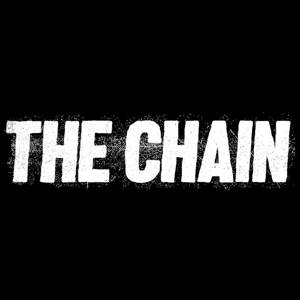 Scene Point Blank: The Chain was founded by three active, independent musicians, which is a unique arrangement. While your personal experiences inspired the idea, how has The Chain's vision from Day One to today changed based on "working on the other side" (and based on technology and other cultural changes)?
Scene Point Blank: The Chain was founded by three active, independent musicians, which is a unique arrangement. While your personal experiences inspired the idea, how has The Chain's vision from Day One to today changed based on "working on the other side" (and based on technology and other cultural changes)?
Curran Reynolds: We started The Chain with the idea that it would be a flexible thing that could expand and evolve in whatever directions we choose. So while we've started out as a PR company, it can become more than that. One realm we've already started expanding into is visual art. Brandon brings tremendous graphic design and video skills to the table and all three of us have a passion for visual art. In its most basic form, a publicist might only be a middleman, a connector, without much influence over the content itself. In some cases that's all that's called for, but at The Chain we are also capable of taking a more active role on the visual side, consulting bands about their images and creating the content ourselves when needed. We launched "Chain Art" in April 2020 as a means of putting a name on this new direction. We have more new ideas in the works which you'll hear about soon.
Scene Point Blank: Generally speaking, how do you like working for yourself as compared to not running the show?
Curran Reynolds: I love it!
Scene Point Blank: What advice would you give to others who might be interested in PR work but don't know where to start?
Curran Reynolds: Looking back at my own path, I had no plan, I just followed my heart and things happened. I was obsessed with music and the rest followed. Obsession is a good starting point for PR. If you love a thing, you'll probably be a good publicist for that thing. In terms of some more concrete advice for people, I think an internship is a good way to put yourself in the mix in any industry at a young age. But it's important to note that sometimes the experiences that wind up being crucial aren't the ones you expect. In my case, it was a job handing out flyers on street corners that wound up leading directly to my first significant job in the industry.
Scene Point Blank: On a broader level, any advice for people who may be interested in self-employment in any field?
Curran Reynolds: I wanted the freedom to make my own moves, that's why I went the self-employed route. It comes down to the individual person and what they want out of life.
In terms of life's big decisions, I've always operated more from a place of passion than a place of strategy. I acknowledge that this can be a dangerous stance. The strategists are the people who tend to win at our society's games, but I guess I've mostly rejected those games anyway. I think it's only in the past few years that I'm finding ways to reconcile strategy and passion and use both in a positive way.
Scene Point Blank: Anything you'd like to add?
Curran Reynolds: Body Stuff's first full-length album is in the works now. The first three Body Stuff EPs are streaming everywhere, along with Xiu Xiu's remix of our song "New York in the Rain" and our guest appearance on Trace Amount's single, "Concrete Catacomb."
